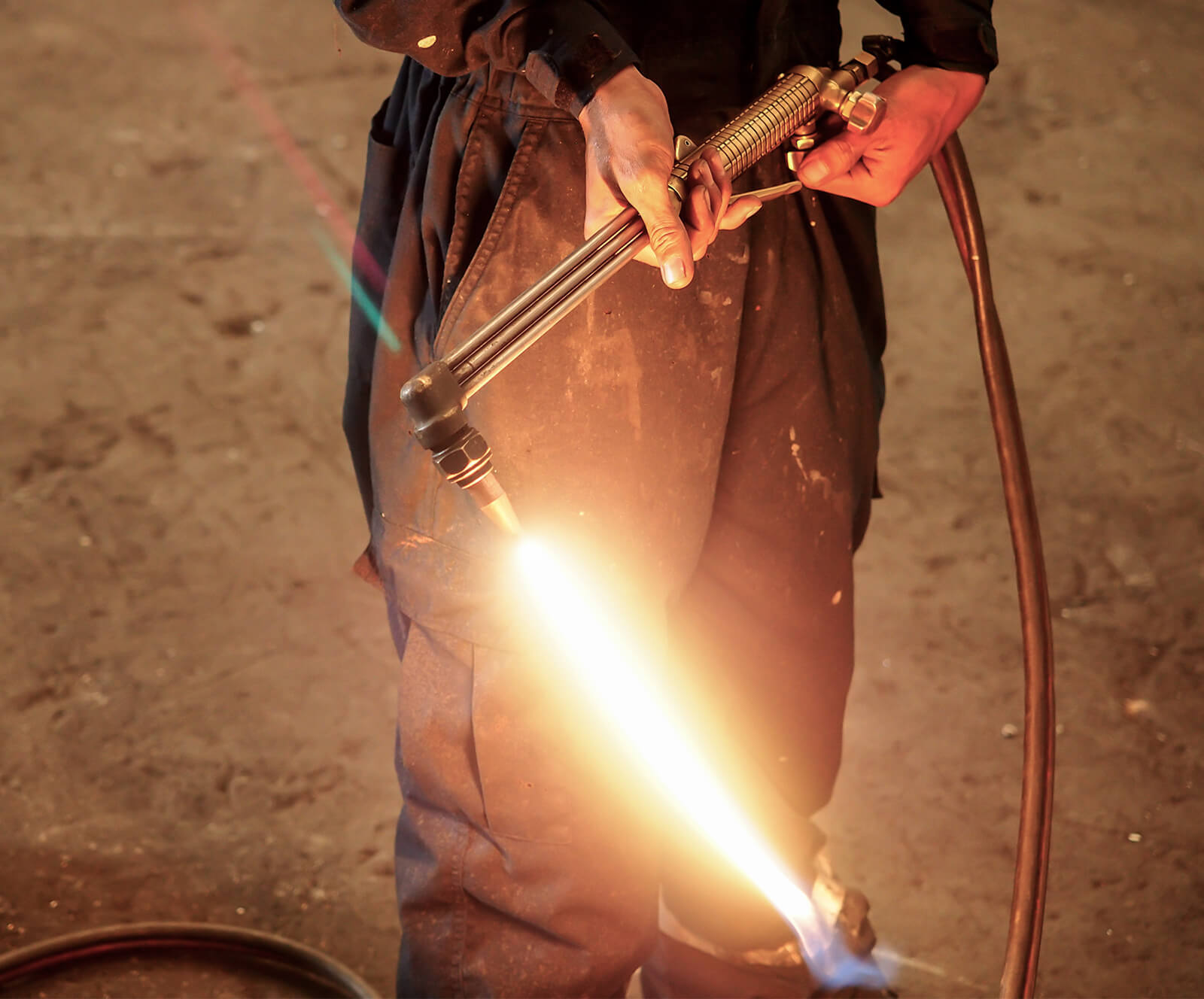Acetylene Industrial Grade — High-Temperature Fuel Gas for NZ Fabrication
Coregas acetylene-industrial-grade is a reliable fuel gas for oxy-acetylene cutting, welding, brazing and heat-forming in workshops and on site. Supplied as a dissolved gas in cylinders, it delivers a hot, concentrated flame for fast preheat, clean pierce and efficient metal removal when paired with oxygen (process set-up as per your WPS and OEM torch data).
Why Coregas for Industrial Acetylene
Consistency & availability: NZ-wide supply with dissolved-gas cylinders for safe handling and transport.
Application support: Guidance on regulators, flashback arrestors and hose sets to match flow and pressure requirements. Never open a cylinder without a regulator attached; use equipment compatible with acetylene.
Closed-loop stewardship: Return cylinders to Coregas for contents disposal/end-of-life.
Safety & Handling Essentials (Summary)
Hazards: Extremely flammable; may react explosively even without air; gas under pressure (dissolved). Asphyxiant if oxygen is displaced.
Prevention: Keep away from heat/sparks/open flames; no smoking; follow site controls.
Storage: Protect from sunlight; store upright, restrained, below 65 °C in a dry, well-ventilated non-combustible area; keep away from traffic/exits.
First aid: Treat for asphyxia if exposed to high concentrations.
Fire response: Cool cylinders from a protected location; do not extinguish a leaking-gas flame unless the leak can be stopped safely; Hazchem 2SE.
Compatibility: Avoid copper alloys >65 % Cu, silver and mercury (risk of explosive acetylides).
PPE & ventilation: Provide suitable ventilation; wear eye protection and gloves; SCBA/Air-line in confined spaces per risk assessment.
Transport & Classification
UN 1001 — ACETYLENE, DISSOLVED; Dangerous Goods; Hazchem 2SE. Follow NZS 5433 and internal transport SOPs.
FAQs — Industrial Acetylene
Is industrial acetylene a “dissolved” gas? Yes. The product is supplied as a dissolved gas in cylinders, classified as a gas under pressure (dissolved).
What fittings should I avoid? Avoid using copper alloys above ~65 % Cu, silver or mercury, due to the risk of forming explosive acetylides.
Can I fully shut off a leaking acetylene flame? Only if you can safely stop the leak; otherwise do not extinguish—cool the cylinder from a protected area and await emergency support.
How should cylinders be stored? Upright, restrained, ventilated, below 65 °C, away from ignition sources and traffic routes, with “No Smoking/Open Flames” signage.
Health effects to plan for? Acetylene is an asphyxiant at high concentrations; plan ventilation and rescue per confined-space rules.
End-of-life—what do we do? Return cylinders to Coregas for contents disposal.

